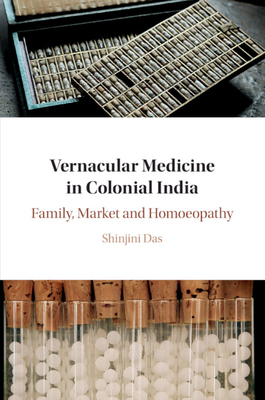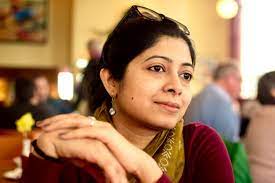

 Cambridge University Press
Cambridge University Press
Vernacular Medicine in Colonial India: Family, Market and Homoeopathy


Key Metrics
- Shinjini Das
- Cambridge University Press
- Paperback
- 9781108430692
- 9 X 6 X 0.65 inches
- 0.91 pounds
- Medical > History
- English
 Secure Transaction
Secure TransactionBook Description
Author Bio
I am a historian of British Imperialism and Modern South Asia, with research and teaching interests in histories of colonial science and medicine, South Asia, and (more recently) colonial Christianity. In 2019 I joined University of East Anglia as Lecturer in Modern Extra European History. I am the author of Vernacular Medicine in Colonial India: Family, Market and Homoeopathy (Cambridge University Press, 2019) and co-editor (with Gareth Atkins and Brian Murray) of Chosen Peoples, Promised Lands: Bible, Race and Empire in the Nineteenth Century (Manchester University Press, 2020).
I received my PhD from University College London in 2012. Since then, I have held an ERC-funded collaborative Postdoctoral Fellowship at the University of Cambridge (2012-2017); and a Wellcome Trust-funded Medical Humanities Fellowship at the University of Oxford (2017-2019).
My first monograph Vernacular Medicine in Colonial India: Family, Market and Homoeopathy (CUP, 2019) explores how the colonized peoples negotiated with and reshaped western medicine. It examines the interactions between British state, Indian nationalist print cultures and indigenous commercial interests relating to public health governance in India. The official health policy of the state promoted state medicine or biomedicine. The book tracks how, despite the state’s opposition, a medical practice that was marginal in Europe could become a mainstream aspect of public health in the colony. Combining insights from the history of colonial medicine and the cultural histories of family in British India, the book examines the processes through which Western homoeopathy was translated and indigenised in the colony as a symbol of Indian nationalism, a specific Hindu religious worldview, an economic vision and a disciplining regimen of everyday life.
My co-edited volume Chosen Peoples, Promised Lands: Bible, Race and Empire in the Nineteenth Century (MUP, 2020) explores how biblical themes and metaphors shaped narratives of racial, national and imperial identity in the long nineteenth century. It responds to the recent ‘global turn’ in the historiography in its exploration of these narratives as they developed across a very wide range of different contexts: from North America to Central Europe, Africa, Asia, the Middle East, Ireland and Australasia.
My current research, provisionally titled Healing Heathen Lands: Christianity, Medicine, Empire critically analyses the role of British Protestant missions and transnational humanitarianism in the making of colonial public health in India. I examine how the theologically shaped ideas of missionaries on disease and healing interacted with colonial public health policies. While tracing the relationship of British medical missions with the colonial (and the post-colonial) state, I track the response of Indians to Christianity and Christian missions. I am particularly focusing on missionary engagement with control of leprosy, famines and venereal diseases.
I have collaboratively organised conferences on themes such as ‘The Bible, Race and Nation in the 19th c’ (Cambridge, 2014) and ‘Orientalism and Its Institutions’ (Cambridge, 2016).
Education
- University College London, PhD
Source: TheConversation.com
Videos
No Videos
Community reviews
Write a ReviewNo Community reviews